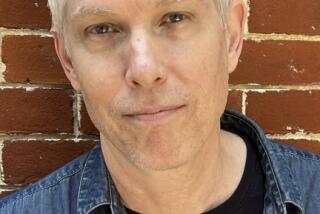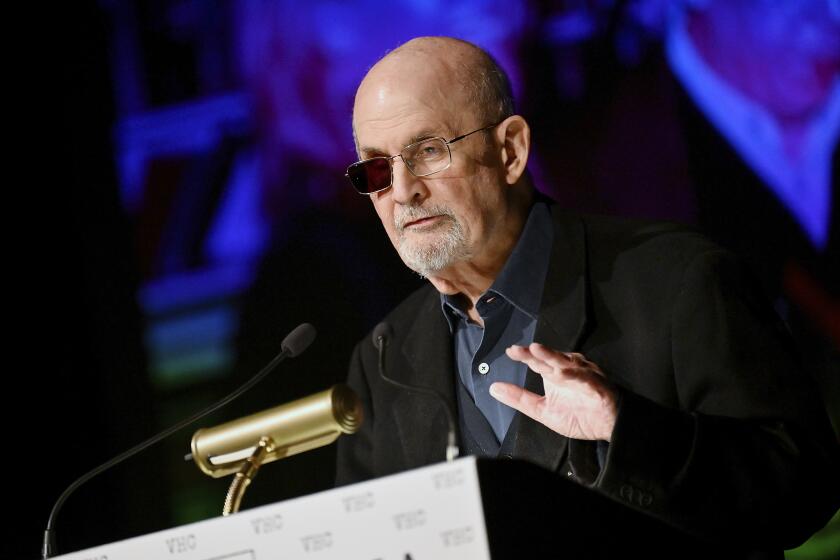Discoveries

Jesse’s Ghost by Frank Bergon (Heyday: 224 pp., $20) It’s a short drive north from Los Angeles to California’s San Joaquin ValleyCentral same time zone, same state, but you might as well be traveling to another planet. Central California is a place that has had its own heart torn out to feed the rest of the country — ranches and fields have long since been denuded and propped up with fertilizers and pesticides, and the history of labor — the pickers, ranch hands, farmhands from all over the world but mostly Mexico — is documented in articles and books. Frank Bergon finds beauty in the valley, and not through artifice. He sticks to his main character, Sonny, like glue; breathing in his body as he tells the story of how, decades ago, when he was 27, he shot his best friend, Jesse, over a woman. There is huge insight here into the lives of valley workers — the tools they use, what they eat for lunch, what they drink and how they fight and flirt. Also how they die, from malathion poisoning, or alcohol, or diabetes.
Bergon doesn’t romanticize any of it, allowing us to find a way into these lives. He grew up in the San Joaquin Valley, yes, but there’s more than keen observation and good listening at work here.
The Nature Principle: Human Restoration and the End of Nature-Deficit Disorder by Richard Louv (Algonquin Books: 320 pp., $24.95) Richard Louv’s 2005 book, “Last Child in the Woods,” struck a chord among readers around the world. His ideas on the effects of nature-deficit disorder, “an atrophied awareness, a diminished ability to find meaning in the life that surrounds us,” are fleshed out here, supported by a rapidly growing literature of scientific studies, and extended to include what he calls “the nature principle,” which holds that “a reconnection to the natural world is fundamental to human health, well-being, spirit, and survival.” There is a great urgency to this work. As of 2008, Louv writes, more than half of the world’s population lives in cities. “Our culture’s faith in technological immersion seems to have no limits, and we drift ever deeper into a sea of circuitry.” Louv cites study after study that shows people of all ages— from kindergarten through college—learn, test, perform, and create better when exposed to greenery, gardens and wild places. The future, he writes, belongs to the nature-smart, people with well-developed senses, intuition, environmental awareness, reflexes, “those individuals… who develop a deeper understanding of nature, and who balance the virtual with the real.” So much of this book makes utter sense and Louv is gentle with his simple agenda: more green in schools, more access to nature in communities, the importance of giving people the tools and the health they need to create a better world.
Tolstoy and the Purple Chair: My Year of Magical Reading by Nina Sankovitch (Harper: 240 pp., $23.99) Several events conspired to inspire Nina Sankovitch to embark on her year of reading one book a day, a project she called “Read All Day.” When she was 43 her beloved sister, then 46, died. One of the many things they shared was a love of books. Sankovitch had stopped working a few years earlier to better care for her immediate family — her husband and four children.
But after her sister’s death she felt keenly the importance of living fully. She quotes critic Cyril Connolly: “words are alive and literature becomes an escape, not from, but into living.” She begins with “The Elegance of the Hedgehog” and keeps on going, reading 70 pages an hour (roughly four hours to read a book) and then writing a review on her website for 365 days. The beauty of her project, for this reader, lies in seeing how books intertwine with daily life, how very much they affect our moods, interactions, and, especially important for Sankovitch, how we recover and process our memories. Sankovitch is not a smarty-pants. Her reviews have an easy, conversational style that is different from the work of so many critics. There is more emphasis on how books make a reader feel than on where they fit in the great canon or how much you have to know to approach the great books. She makes reading seem accessible, relaxing, inspiring, fun.
Salter Reynolds is a Los Angeles writer.
More to Read
Sign up for our Book Club newsletter
Get the latest news, events and more from the Los Angeles Times Book Club, and help us get L.A. reading and talking.
You may occasionally receive promotional content from the Los Angeles Times.






